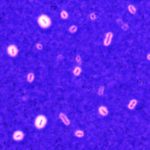Link to Pubmed [PMID] – 36114258
Link to HAL – Click here
Link to DOI – 0.1038/s42003-022-03912-w
Commun Biol. 2022 Sep 16;5(1):977
Ecological causes of developmental evolution, for example from predation, remain much investigated, but the potential importance of latent phenotypes in eco-evo-devo has received little attention. Using the predatory bacterium Myxococcus xanthus, which undergoes aggregative fruiting body development upon starvation, we tested whether adaptation to distinct growth environments that do not induce development latently alters developmental phenotypes under starvation conditions that do induce development. In an evolution experiment named MyxoEE-3, growing M. xanthus populations swarmed across agar surfaces while adapting to conditions varying at factors such as surface stiffness or prey identity. Such ecological variation during growth was found to greatly impact the latent evolution of development, including fruiting body morphology, the degree of morphological trait correlation, reaction norms, degrees of developmental plasticity and stochastic diversification. For example, some prey environments promoted retention of developmental proficiency whereas others led to its systematic loss. Our results have implications for understanding evolutionary interactions among predation, development and motility in myxobacterial life cycles, and, more broadly, how ecology can profoundly shape the evolution of developmental systems latently rather than by direct selection on developmental features.

